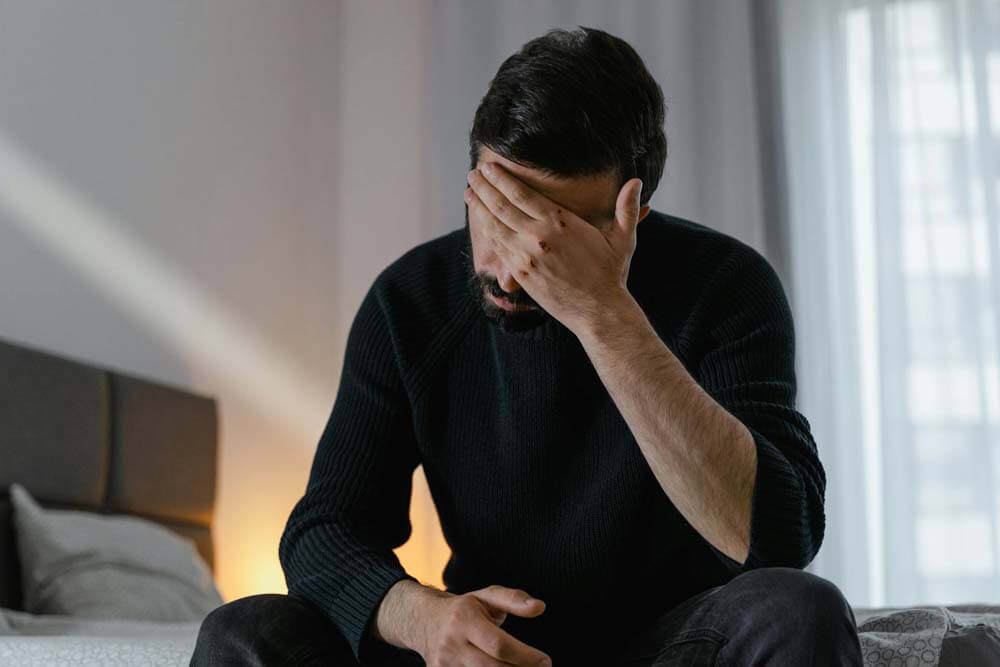Sometimes, after sex or masturbation, instead of relief or contentment, you might feel guilt, shame, sadness, or anxiety. It’s confusing and uncomfortable, but you’re not alone — many people feel this way for various reasons. Below are three possible causes, with scientific definitions, symptoms, and practical solutions to help you feel better.
Reason 1: Obsessive-Compulsive Disorder (OCD)
What is OCD (professional definition & symptoms)
Obsessive-Compulsive Disorder (OCD) is a mental health condition characterized by obsessions (intrusive, unwanted, recurring thoughts, images, or urges) and compulsions (repetitive behaviors or mental acts aimed at reducing the distress caused by those obsessions). [1]
Key symptoms include:
- Persistent, unwanted thoughts or urges (“obsessions”) that provoke anxiety or distress. These might be about contamination, harm, orderliness, unwanted sexual or religious thoughts. [2]
- Compulsions: repetitive behaviors (washing, checking, counting, arranging) or mental acts (praying, mental review) performed to try to reduce the anxiety from those thoughts. [3]
- Recognizing that these obsessions or compulsions are excessive, irrational, or unreasonable (though sometimes insight is partial) but feeling powerless to stop them.
- Significant distress or interference with daily life. When the obsessions/compulsions take up a lot of time or impair relationships, work, or wellbeing.
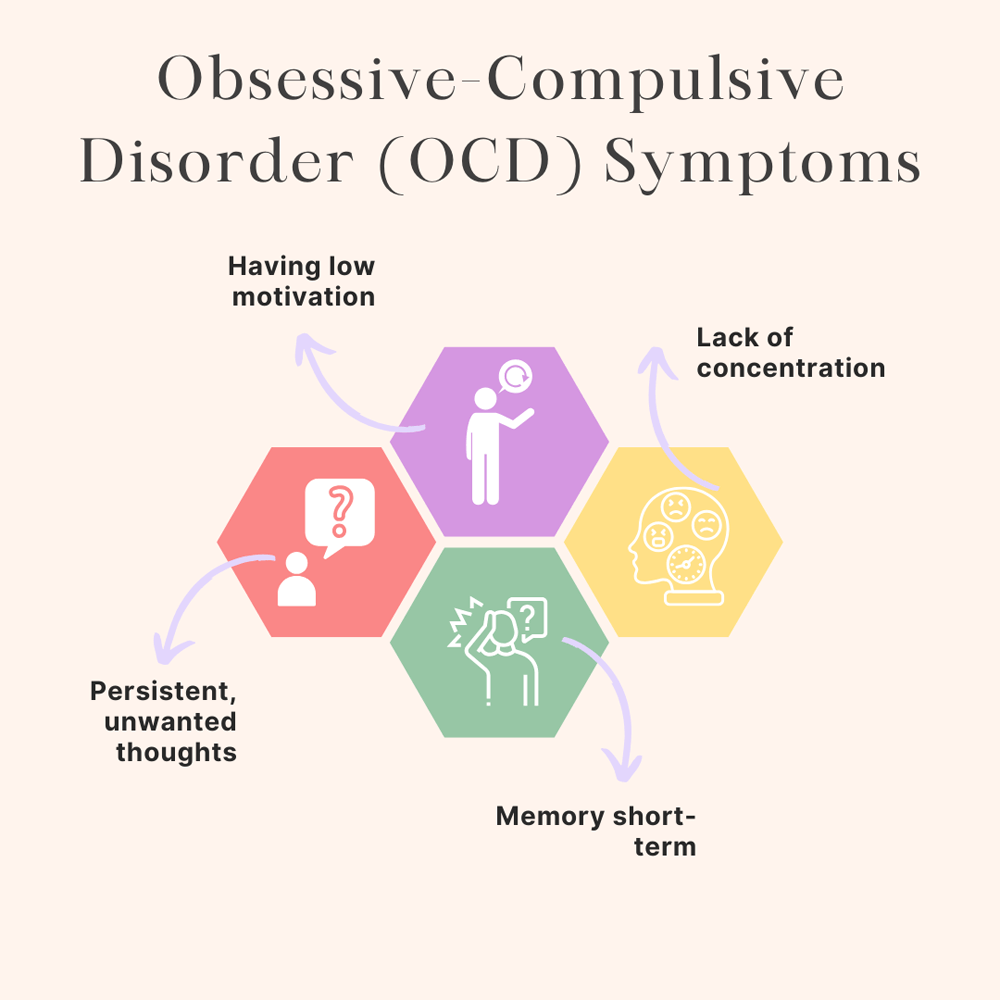
How OCD can produce guilt after ejaculation
Here’s where OCD ties into feeling guilty after ejaculating:
If someone has unwanted sexual or religious obsessions, eg. thoughts that fantasizing, masturbating, or having sexual urges is immoral or shameful, those thoughts may persist after orgasm. The person might judge themselves harshly for having them.
Intrusive sexual thoughts (fantasies or images) may trigger guilt especially if the content conflicts with personal values or beliefs. Even after the act (masturbation, sex), the mind may replay such thoughts and amplify guilt.
The rituals/compulsions may include mental self-checking, self-criticism, or trying to “cleanse” oneself mentally, which keeps the guilt alive.
So, in someone with OCD or OCD-like tendencies, orgasm or ejaculation may trigger or activate intrusive thoughts plus strong value conflicts, leading to guilt or shame.
Solution: Challenge Negative Beliefs
Here are some ways to address the guilt that come from OCD-style negative beliefs, especially after ejaculation:
Identify the belief(s)
Write down what exactly you feel guilty about. Is it that you fantasized about someone you believe you shouldn’t? That masturbating is “dirty” or wrong? That porn is bad? Be specific.
Examine evidence for and against
Challenge those beliefs. Ask: “What evidence do I have that masturbation is immoral or harmful?” “Do other people believe differently?” “Does sex or fantasizing actually cause damage or guilt in objective terms?”
Reframe with more balanced beliefs
Replace harsh beliefs with kinder ones. For example: “It’s normal to have sexual thoughts. Fantasizing doesn’t make me a bad person.” “Masturbation can be healthy.”
Use Cognitive Behavioral Techniques
- Thought records: noticing guilt-triggering thoughts, recording them, then writing counterarguments.
- Exposure: gently allow yourself to experience the sexual thoughts/fantasies you believe are taboo without doing rituals or mental self-punishment. Over time, the anxiety and guilt may reduce.
- Mindfulness: noticing intrusive thoughts nonjudgmentally (“Oh, there’s a thought about X”) without feeding them or trying to push them away.
Seek support
- Therapy: A professional (especially one trained in OCD) can help with ERP (Exposure and Response Prevention) and CBT.
- Peer support: talking to someone you trust about what you feel. Often guilt feels worse when kept secret.
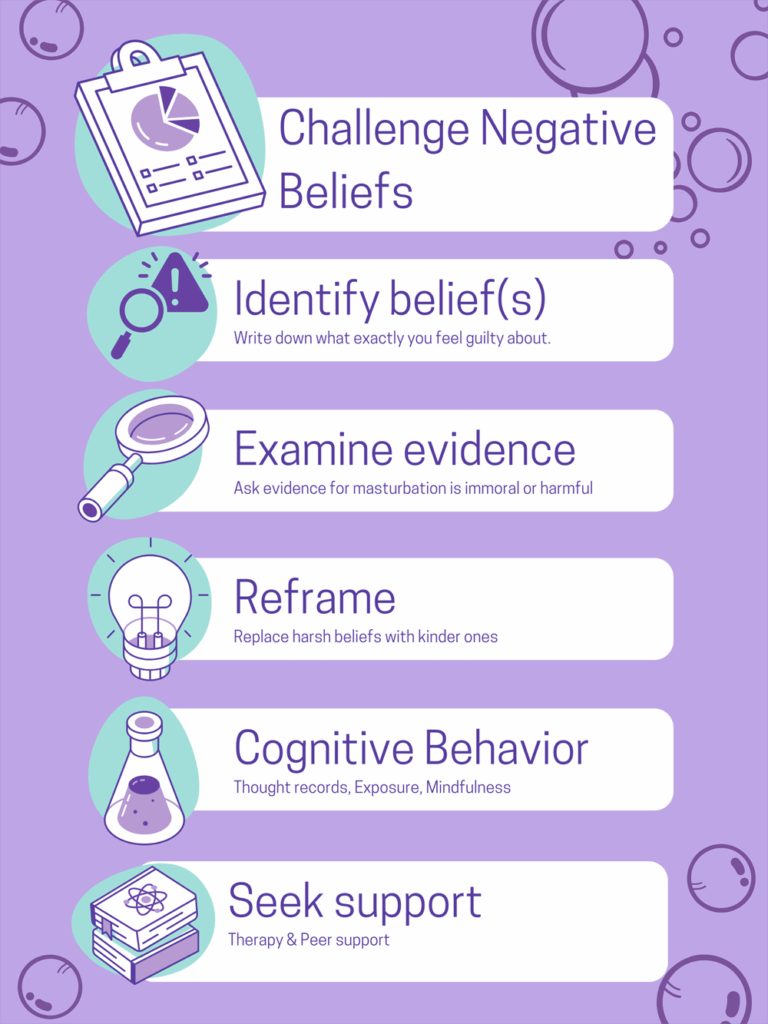
Reason 2: Post-Coital Dysphoria (PCD)
What is Post-Coital Dysphoria (professional definition & symptoms)
Post-Coital Dysphoria (PCD), also called post-coital tristesse or “post-sex blues,” refers to negative emotional states following consensual sexual activity, even if the experience itself was pleasurable. [4]
Symptoms of PCD include:
- Sadness, tearfulness, melancholy. [5]
- Irritability, anxiety, agitation. [5]
- Feelings of emptiness, shame, guilt, or self-blame.
- Sometimes confusion: wondering why negative feelings occur after something pleasurable.
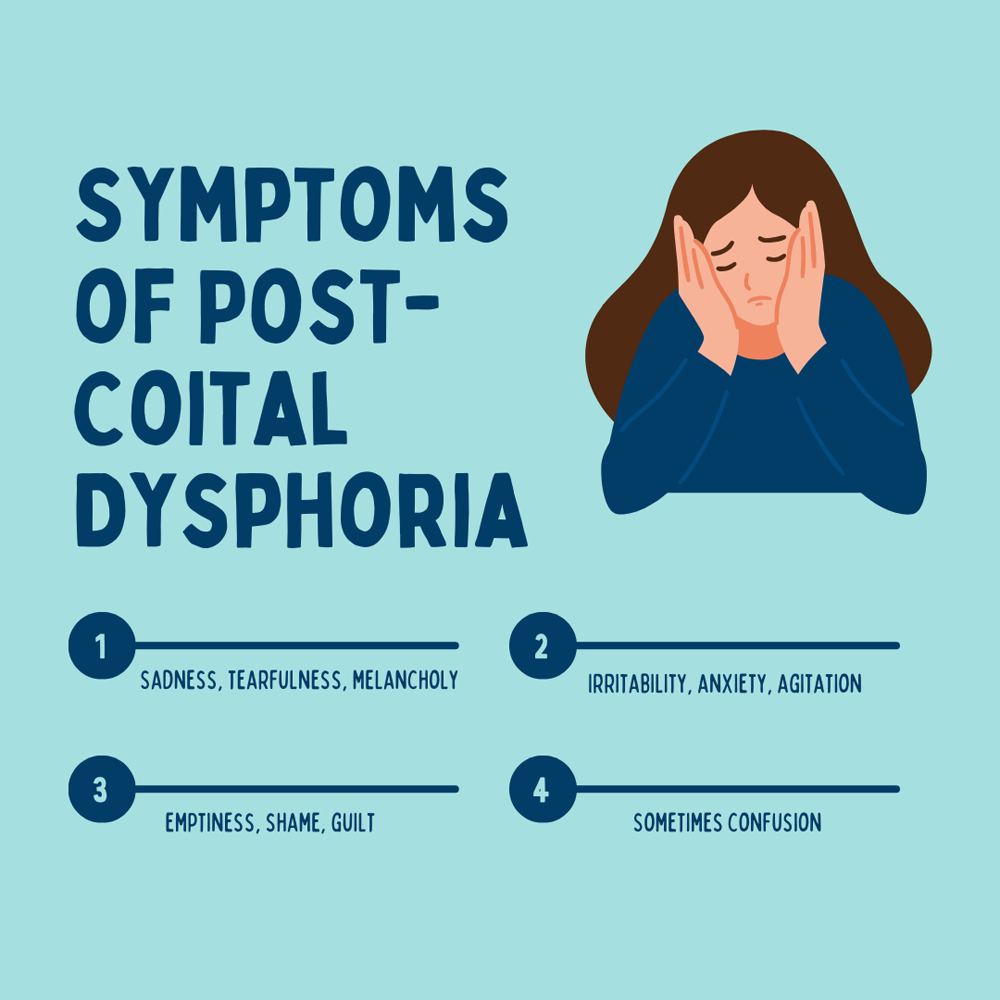
Prevalence: Various studies indicate that many people experience PCD at least once. For example, VerywellMind reports that about 32% of women have experienced it sometime, and around 7% more regularly. [4]
Solution: Scientific approaches to PCD
Here are some scientifically backed (or at least research-informed) strategies to help with PCD:
Aftercare / Emotional Check-In
What you do right after sex or masturbation matters. Do things that soothe you: take a shower, cuddle if with partner, meditate, journal, listen to calming music. These help bridge from physical peak back into emotional baseline more gently. VerywellMind suggests such aftercare rituals.
Awareness & Normalization
Understanding that PCD is a known phenomenon can reduce shame. Knowing that others feel negative emotions post-orgasm sometimes helps you feel less alone. Studies like Postcoital Dysphoria: Prevalence and Psychological Correlates document correlates like anxiety and depression.
Address underlying mental health issues
If you have anxiety, depression, or attachment issues, these can make PCD more likely or make it worse. Therapy, counseling, or self-help in these areas can reduce overall emotional reactivity.
Communicate with partner (if applicable)
If in a relationship, sharing your feelings can reduce isolation and help your partner understand what you need. Sometimes just being heard or comforted makes a big difference.
Mindfulness & Self-compassion Practices
Training to stay in the moment, to notice bodily sensations, to observe emotions nonjudgmentally, can help reduce the emotional drop after orgasm. Also, being gentle with yourself (self-compassion) when guilt or sadness come up.
Moderate Expectations
Not every sexual experience ends with euphoria or full satisfaction. Expecting sometimes neutral or mixed feelings can reduce the shock or self-blame when negative feelings come.
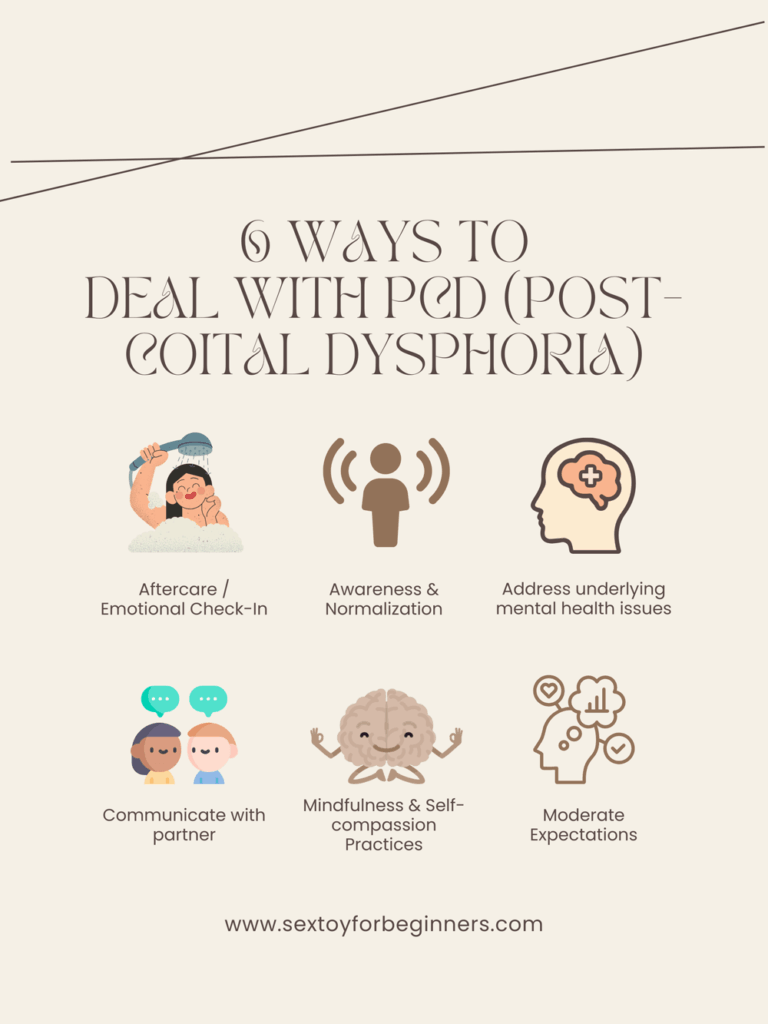
Reason 3: You Did or Expected Something “Wrong”
This is more in the realm of personal values, culture, and what you’ve internalized.
What this means & symptoms
Perhaps you fantasized about someone you feel you shouldn’t fantasize about (e.g. someone you know, someone unavailable), or about sexual content that conflicts with your values.
Maybe you’ve been watching extreme porn (hardcore, anal, fetish, etc.), which raises expectations for what sex “should” feel like or what your body/partner should be like. When reality doesn’t match, you feel disappointed or guilty.
You might feel guilt simply because your beliefs or cultural/religious teachings say that certain sexual behaviors are immoral or bad.
Symptoms might include: shame, regret, self-criticism; mental replay (“why did I think that?”); comparing yourself to porn or fantasies; feeling you’ve violated your own standards.
Solution: Stop Watching or Fantasizing Something Unreal
Here are ways to reduce guilt stemming from unrealistic expectations or conflict with your values:
Reflect on your values
Ask yourself: Which fantasies or porn styles clash with what I believe or feel comfortable with? What are non-negotiables for me (consent, respect, realism)?
Limit / moderate exposure
If certain porn content triggers guilt or makes expectations unrealistic, gradually reduce or stop watching them. Replace with content that aligns more with your values or those that feel more “realistic” or less extreme.
Adjust fantasies to be less rigid
Fantasizing per se isn’t bad; it becomes a problem if you feel like those fantasies must be enacted or compared. Allow yourself more flexible fantasies, and don’t judge your mind for having them.
Use sex toys instead of porn
If porn tends to leave you feeling guilty or disconnected, consider experimenting with a sex toy. Toys can help you focus on your body and sensations instead of external images that might create guilt or unrealistic standards. This way, pleasure comes from within your own experience, not from something that clashes with your values.
Re-educate about what sex is in real life
Porn is often performance, edited, exaggerated. Real sex has flaws, variations, normal awkwardness. Learning this (via reading, talking, therapy) helps adjust expectations.
Forgiveness and self-kindness
If you feel you’ve “done wrong”, try forgiving yourself. Remind yourself that sexuality is a natural part of human life. Feeling guilt doesn’t mean you’ve done something irreversible.
Seek counseling if guilt is severe
If guilt is overwhelming, persistent, or disrupting your life, talking to a sex therapist or counselor can help you unpack these issues safely.
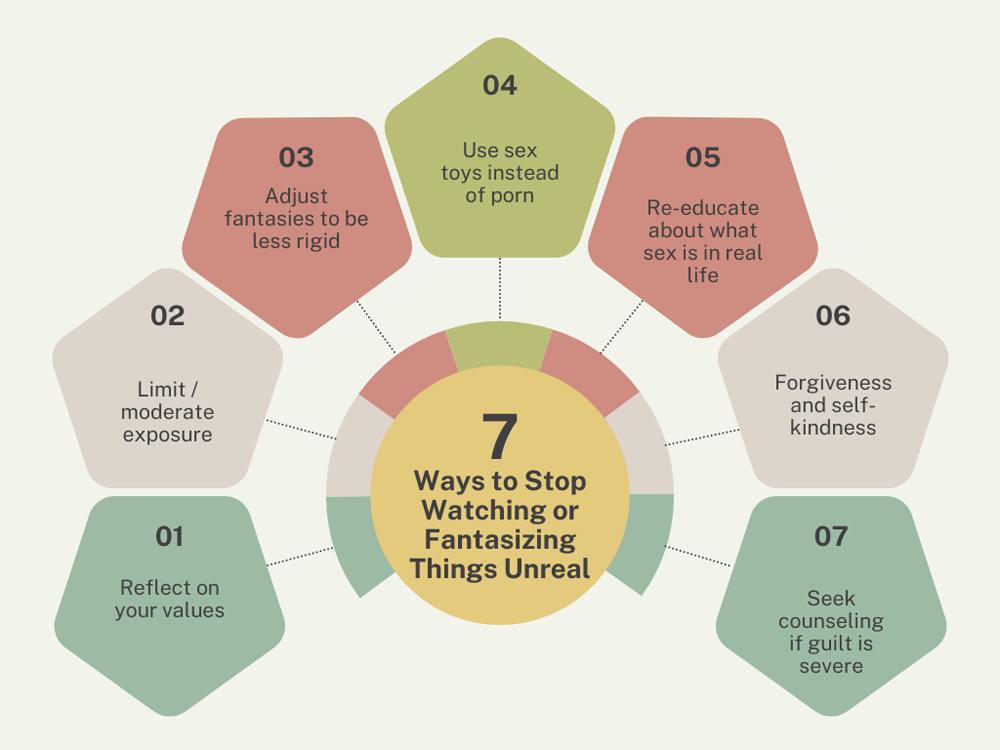
To Wrap Up
Feeling guilty after ejaculating can come from different sources — psychological disorders like OCD, emotional responses like PCD, or conflicts between your behaviors/fantasies and your personal or cultural values. The good news is, understanding where the guilt comes from gives you power to respond differently. You don’t have to stay stuck.
If you identify with one of these reasons (or more than one), you can try the matching solutions: challenging negative beliefs, doing emotional aftercare, adjusting expectations, and being kinder to yourself. And if it’s too much on your own, professional help is always an option. You deserve to feel at ease with your sexuality.
References
1. Shmerling, R. H. (2025, July 7). Obsessive-compulsive disorder (OCD). Harvard Health Publishing. https://www.health.harvard.edu/mind-and-mood/obsessive-compulsive-disorder-ocd-a-to-z
2. (n.d.). Obsessive-compulsive disorder (OCD). Mayo Clinic. www.mayoclinic.org/diseases-conditions/obsessive-compulsive-disorder/symptoms-causes/syc-20354432
3. (n.d.). Obsessive-Compulsive Disorder (OCD). Cleveland Clinic. https://my.clevelandclinic.org/health/diseases/9490-ocd-obsessive-compulsive-disorder
4. Wisner, W. (2023, July 27). Postcoital Dysphoria: How to Cope With the “Post-Sex Blues”. Verywellmind. www.verywellmind.com/postcoital-dysphoria-coping-with-the-post-sex-blues-7562996
5. Schweitzer, R. D., O’Brien, J., & Burri, A. (2015). Postcoital Dysphoria: Prevalence and Psychological Correlates. Sexual medicine, 3(4), 235–243. https://doi.org/10.1002/sm2.74
